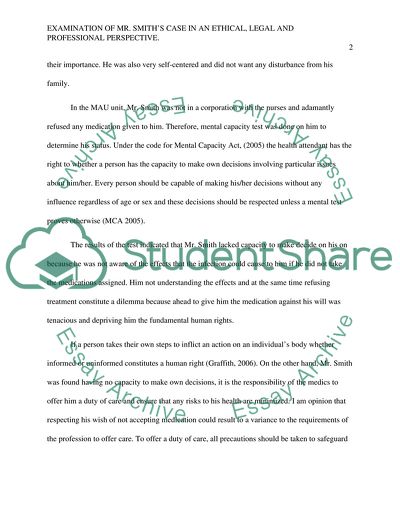Cite this document
(“Mr. Smiths case in an ethical, legal and moral perspective Essay”, n.d.)
Mr. Smiths case in an ethical, legal and moral perspective Essay. Retrieved from https://studentshare.org/social-science/1640255-ethics-law-and-professionalism
Mr. Smiths case in an ethical, legal and moral perspective Essay. Retrieved from https://studentshare.org/social-science/1640255-ethics-law-and-professionalism
(Mr. Smiths Case in an Ethical, Legal and Moral Perspective Essay)
Mr. Smiths Case in an Ethical, Legal and Moral Perspective Essay. https://studentshare.org/social-science/1640255-ethics-law-and-professionalism.
Mr. Smiths Case in an Ethical, Legal and Moral Perspective Essay. https://studentshare.org/social-science/1640255-ethics-law-and-professionalism.
“Mr. Smiths Case in an Ethical, Legal and Moral Perspective Essay”, n.d. https://studentshare.org/social-science/1640255-ethics-law-and-professionalism.


